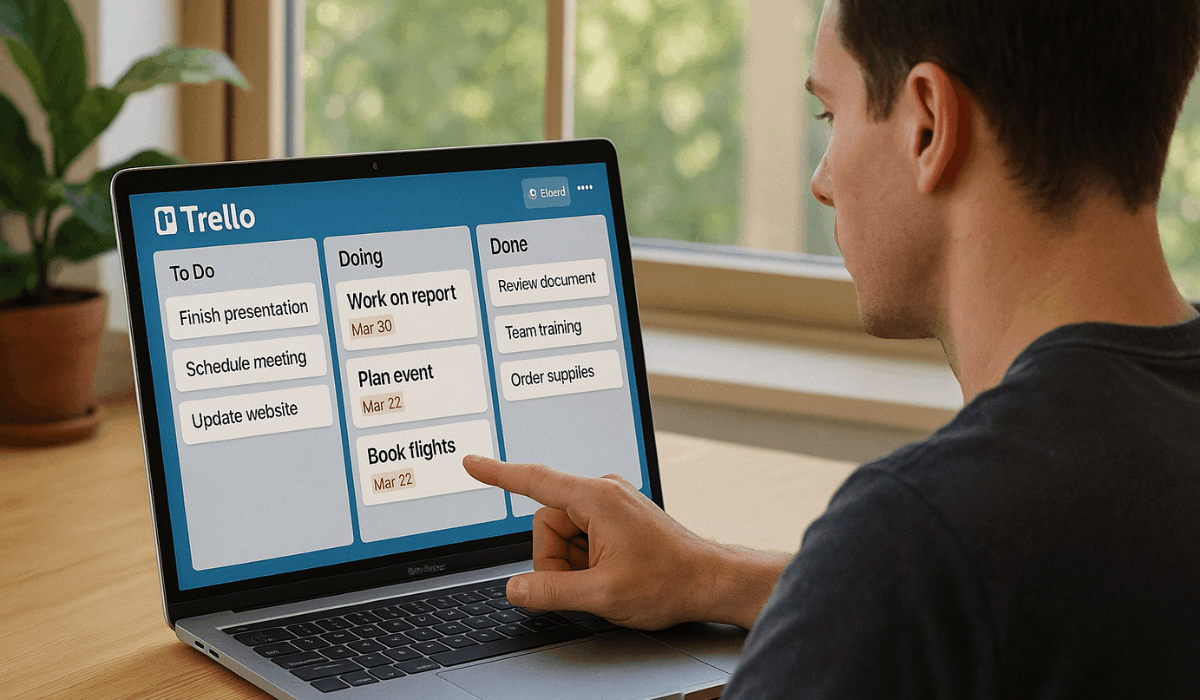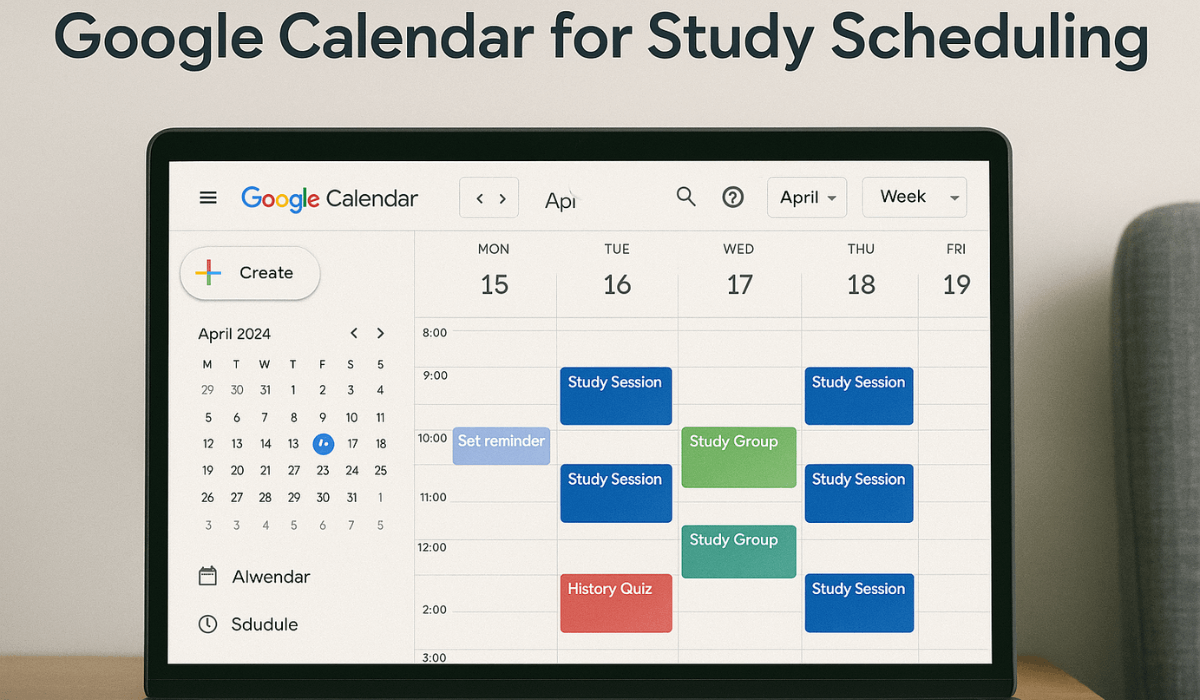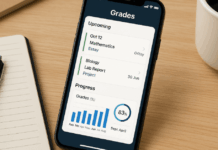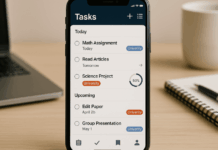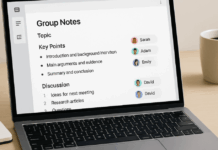Managing your time effectively can make a significant difference in how well you study.
The right app helps you stay organized, focused, and in control of your schedule.
This guide covers the best time management apps that can boost your study efficiency with smart features and easy-to-use tools.
What Makes a Good Time Management App for Students?
Choosing the right time management app can help you stay on track with deadlines, balance your workload, and reduce stress.
A good app should be simple, effective, and tailored to your study needs. Here are the key features to look for:
- User-Friendly Interface – Easy to navigate with minimal setup.
- Task and Schedule Planning – Lets you create to-do lists, calendars, and deadlines.
- Reminders and Alerts – Sends notifications to keep you on track.
- Focus Tools – Includes Pomodoro timers or app blockers to reduce distractions.
- Cross-Device Sync – Keeps your data up to date across your phone, tablet, and laptop.
- Offline Access – Works even when you don’t have an internet connection.
- Custom Tags or Labels – Helps you organize tasks by subject or priority.
- Progress Tracking – Lets you see what you’ve completed and what’s coming next.
- Integration – Works seamlessly with your other tools, such as Google Calendar, Notion, or Learning Management Systems (LMS).
- Free Version Availability – Offers solid features without requiring payment.
Top Time Management Apps for Study Efficiency
With numerous platforms available, selecting one that aligns with your study habits is crucial.
These top picks help you stay organized, focused, and on track. Use this guide to compare features and determine which option works best for you.
Trello
Trello is a visual project management app that helps students break down study tasks using boards, lists, and cards.
Features:
- Drag-and-drop task cards
- Customizable boards for each subject
- Due dates and checklists
- Power-ups for calendar view and automation
- Collaboration tools
Best For:
- Managing group projects
- Visual learners who like board layouts
- Tracking multi-step assignments
Pros:
- Intuitive and flexible
- Great for teamwork
- Highly customizable with add-ons
Cons:
- It can get cluttered with too many cards
- The free version has limited Power-ups
Todoist
Todoist is a powerful task manager that helps you keep track of assignments, projects, and personal goals in one place.
Features:
- Task creation with due dates
- Priority levels and labels
- Project folders and filters
- Daily and weekly overviews
- Google Calendar integration
Best For:
- Organizing homework and deadlines
- Managing recurring tasks
- Prioritizing study goals
Pros:
- Clean, simple interface
- Cross-platform sync
- Supports both personal and academic use
- Collaborative features available
Cons:
- Some advanced features require a paid plan
- It may be too basic for complex project planning
Forest
Forest uses a unique focus timer that encourages you to plant virtual trees by staying off your phone, helping you focus during study sessions.
Features:
- Focus timer (Pomodoro-style)
- Rewards system to grow virtual trees
- App usage blocker
- Real-tree planting partnership
Best For:
- Staying focused and avoiding distractions
- Building study habits
- Short, timed work sessions
Pros:
- Engaging and motivating design
- Helps reduce screen time
- Fun reward system
Cons:
- Limited customization in the free version
- Doesn’t handle task planning
Notion
Notion is an all-in-one workspace that lets you create custom pages for notes, task lists, calendars, and study plans.
Features:
- Notes, task databases, and kanban boards
- Templates for planning and studying
- Calendar and reminder functions
- Collaboration tools
- Tagging and linking features
Best For:
- Students who like flexible, custom planners
- Organizing long-term study materials
- Tracking multiple projects
Pros:
- Highly customizable
- Combining multiple tools in one
- Suitable for personal and academic use
Cons:
- Steeper learning curve
- It can feel overwhelming at first
MyStudyLife
MyStudyLife is a planner specifically designed for students, featuring tools to manage classes, exams, and assignments.
Features:
- Class and exam timetable
- Assignment tracking
- Notifications and reminders
- Cloud sync across devices
- Offline access
Best For:
- High school and college students
- Tracking academic schedules
- Managing coursework and deadlines
Pros:
- Designed with students in mind
- Works offline
- Free to use
Cons:
- Fewer customization options
- Not ideal for non-academic tasks
Google Calendar
Google Calendar is a simple, free tool that lets you schedule study sessions, deadlines, and reminders with ease.
Features:
- Event scheduling with reminders
- Color-coded calendars
- Recurring tasks
- Syncs with Gmail and other Google tools
- Day, week, and month views
Best For:
- Creating a clear study schedule
- Managing exam dates and classes
- Syncing across all devices
Pros:
- Free and widely accessible
- Syncs automatically with Gmail
- Great for time-blocking
Cons:
- Not designed for detailed task management
- Limited note-taking or tracking features
How These Apps Help You Study Smarter
Time management platforms aren’t just for tracking tasks—they improve the way you study.
They help you stay organized, focused, and consistent, allowing you to use your time more effectively. Here’s how:
- Keep Deadlines Visible: Avoid missing assignments or test dates
- Break Down Big Tasks: Turn overwhelming projects into manageable steps
- Improve Focus: Use timers or app blockers to reduce distractions
- Build Consistent Study Habits: Set routines and stick to them daily
- Track Your Progress: See what you’ve completed and where to improve
- Balance Study and Free Time: Helps you plan breaks and avoid burnout
- Reduce Last-Minute Cramming: Plan with reminders and schedules
- Stay Motivated: Visual progress and small wins keep you going
How to Choose the Right App for You
Not every app fits every study style. To find the right one, focus on what you need most—whether it’s better focus, task tracking, or full schedule planning.
Here are key points to consider:
- Identify Your Main Goal: Do you need help focusing, organizing tasks, or managing your schedule?
- Check the Interface: Choose an app that’s easy for you to use on a daily basis.
- Consider Device Compatibility: Ensure it works seamlessly across all your devices (phone, tablet, laptop).
- Explore Customization Options: Some apps allow you to create your layouts, tags, or templates.
- Decide If You Need Collaboration Tools: Useful for group projects or shared study plans.
- Check Offline Access: This is important if you study in places without Wi-Fi.
- Review Free vs. Paid Features: Choose one that offers enough features without requiring an upgrade.
Integrating Time Management Apps with Study Techniques
Time management tools work better when paired with proven study techniques.
Combining tools with methods like the Pomodoro technique or active recall enhances focus and productivity. Here are practical ways to use both together:
Use Pomodoro with Forest or Focus To-Do
- Set 25-minute focus sessions with short breaks
- Boosts concentration and reduces burnout
Pair Task Batching with Todoist or Trello
- Group similar tasks (e.g., reading, note reviews) in one block
- Minimizes context switching and saves time
Combine Active Recall with Notion or OneNote
- Create flashcards or Q&A pages from your notes
- Reinforces memory through self-testing
Schedule Time Blocks in Google Calendar
- Reserve specific hours for subjects or topics
- Keeps your day structured and distraction-free
Track Progress Weekly in MyStudyLife or Todoist
- Review completed tasks and adjust goals
- Encourages consistent study habits and accountability
Link Study Plans to Deadlines
- Set milestones or reminders ahead of exams
- Prevents last-minute cramming and improves preparation
The Bottomline
The right time management app can make a big difference in how effectively you study.
By staying organized and focused, you’ll get more done with less stress.
Try one of these apps today and take control of your study routine.

